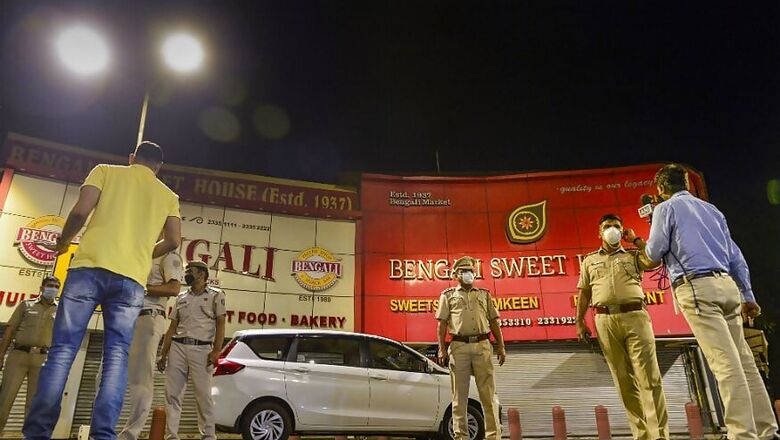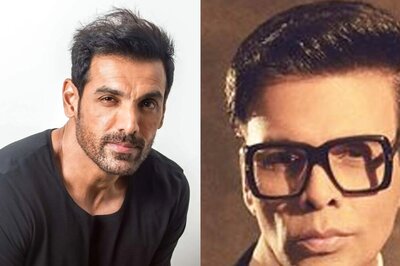
views
Delhi Police personnel have been among the frontline workers during the COVID-19 outbreak, which has not only put them at a greater physical health risk but also amplified their stress levels due to personal reasons, officials said.
There is a 30-year-old constable who now sanitises his hands at a gap of every two or three minutes and remains isolated from family members even at home. He also has sleep disorders now that developed around March 15, when the pandemic threat had started to peak, they said.
In another case, a 42-year-old sub-inspector, who lost his mother due to COVID-19, is overly stressed thinking he or his family might contract the infection now.
A woman personnel, who is spending more time at home during the pandemic, is tensed because her family wants her to get married but she feels that as a sole bread earner of the family she needs to take care of her younger brother, who has health issues, and her elderly mother.
There are also personnel who are stressed due to domestic issues like some property dispute in their native districts outside Delhi, or physical health issues such as blood pressure or diabetes too.
Amid the COVID-19 pandemic, Delhi Police has initiated a campaign to reach out to its personnel who are distressed due to personal or health issues and provide them with expert professional help, Deputy Commissioner of Police (DCP) Sanjay Bhatia said.
The campaign, 'Healthy Police, Happy Police,' has been initiated by the central district, which has a staff of 2,705 personnel, several of whom have informed their seniors about stress due to personal reasons and have sought counselling, he said.
The whole process is confidential to respect the privacy of police personnel seeking help, the DCP said.
"In the time of the spread of coronavirus pandemic, police personnel are performing duties under challenging circumstances. This not only results in physical but also psychological stress," Bhatia said.
"Under the campaign, all police personnel posted in the district were sent a health problem questionnaire and their health status was taken in a sealed envelope. "These health-related problems were classified under three categories-physical problems, psychological stress and domestic problems. Based on the information received a counselling session will be held periodically, whereby the problems of police personnel will be heard by expert physicians, psychologists and domestic problem counsellors and expert guidance will be provided," he said.
A total of 2,705 such forms were distributed to the personnel in the central district and so far 1,500 filled forms have returned, they said.
Around 150 personnel, which include both male and female, have sought help for stress issues, while another 100 have sought administrative assistance for other problems, like leave or work hours, the officials told PTI.
The first such session with a batch of 30 personnel in attendance took counselling from professionals on June 26, they said.
"The police approach is to identify such cases among its personnel and provide them help so that problems do not escalate. It is to ensure the overall wellbeing of our personnel," Additional DCP Sikandar Singh said.
"We will provide them with counselling and also follow up their cases by seeking their feedback on counselling sessions to know if it is really helping them. Any changes required will be made accordingly," Singh said.
Clinical Psychologist Kaartik Gupta, who was one of the expert counsellors who interacted with policemen as part of the 'Healthy Police, Happy Police' campaign, said he observed cases of anxiety, sleep disorder and stress during the first session on June 26.
"Such health issues need more sessions of psychotherapy over a period of time. It is obvious that not many people open up with experts initially. In some cases, medication or long terms of psychotherapy could be required, which will be handled accordingly," Gupta said.
During the first session, the counsellors got an average 20 to 25 minutes each with a personnel with the experts saying this duration could ideally be around 45-50 minutes.
Police officials said they are considering re-organising batch sizes for counselling sessions as it is only for the first time that some initiative like this has taken place.


















Comments
0 comment